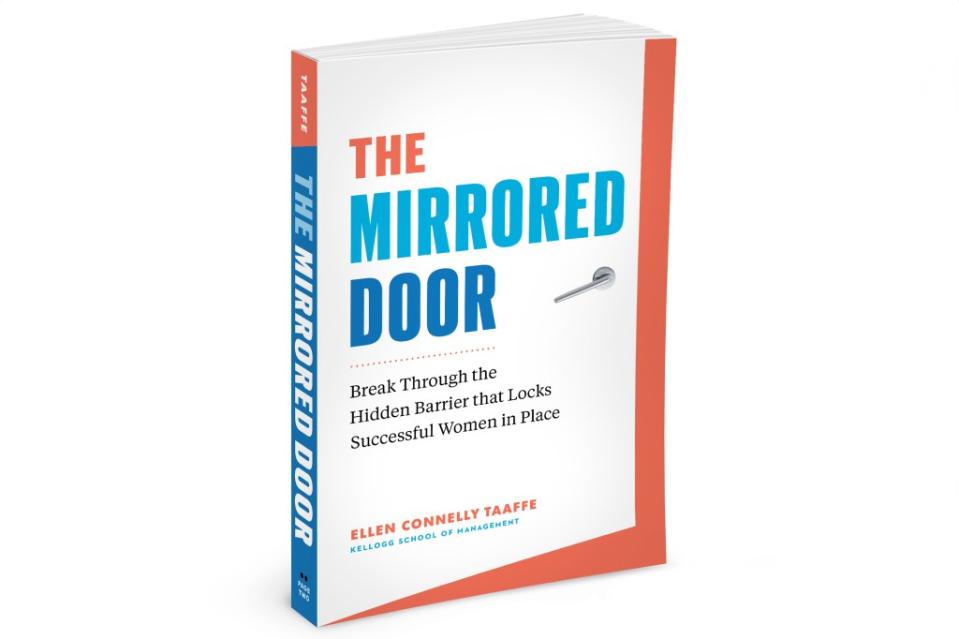Perfectionism helps women stand out at work. But over-preparedness can deny them leadership positions
Welcome back, Broadsheet readers! Queen Margrethe II of Denmark is stepping down from the throne, states are expanding birth control access in 2024, and author and Kellogg School of Management professor Ellen Connelly Taaffe explains how perfectionism can prevent women from reaching the very top in an excerpt from her new book The Mirrored Door. Have a great start to your 2024!
- Over-prepared. Elena, a director at a consumer products company, was sitting in a coaching session with me. “I did everything right. I over-delivered on every project, role, and assignment they asked for or suggested. I’ve been working nonstop. But suddenly I feel like I’ve lost my luster in their eyes. I don’t get it. What happened?” she wondered. “I used to be the one my boss asked to handle things. I was the go-to who delivered perfect analysis. I was the confidante for where we were going next. Now, I’m the last to know and never placed on the new initiative.” Her voice broke.
I have often heard some version of this from mid-career professional women. Suddenly, they wake up and see that their external perception has shifted from successful to sidelined. Little things add up to an unannounced, invisible fall from grace. They feel unsteady on their feet, fretting about what to do next, and question the loyalty and advocacy that once felt so strong. They also feel frustration and resentment because they were given little to no direct communication about the issue, and they had to figure it out on their own while their confidence was rocked. To recover, they did what always worked for them: work harder, play it safe, and prepare to get to the right answers and a better place.

Those who like to prepare relish the opportunity because it is squarely in their control. When we are well-prepared, we’ve got the answers. Clients and senior leaders begin to count on us for them, knowing we’ve done the work. It’s a major success factor, especially early in our careers, when getting things done well and assessing all the drivers, de-railers, and details of a work product matter.
In time, we learn to identify as the person who knows their stuff. We continue to take on more. We are respected as a doer, expert, and project leader. We become successful within a team or organization. But that success has an underbelly when our perfectionism pigeonholes us as the worker bee.
“I’m not sure she is leadership material,” the division leaders said to the department heads about a trusted director during the annual performance assessment meeting. “She’s a hard worker and very smart, but we don’t see her getting out of the weeds.” In two sentences, this ambitious 30-something woman’s career at this company came into question.
We may realize too late that the success strategies that initially fuel us can begin to work against us. When perfectionism becomes habitual, or the only way we know how to act, we may struggle to take risks and find it challenging to operate with incomplete information or know when something is good enough. The workplace is full of such ambiguous situations. Navigating through uncertainty and ambiguity is part of being a leader.
We can find ourselves preparing for others to shine in the spotlight and inadvertently hidden when the work is presented. The workload can become overwhelming—and opportunities to grow are assigned elsewhere. Our preparation becomes our coping mechanism. When we don’t have time to do the usual preparation, anxiety can kick in and we may avoid taking advantage of opportunities. We don’t as readily see that our experience gets us there too—that we have grown our skills and competencies since we started the habit. Preparing to perfection, as I call it, steals the development of our skill to think on our feet, to be able to answer with a framework of what we know instead of the details of heavy-duty analysis. We don’t learn how to move forward with partial information and the success or failure that results. The well-intentioned, over-prepared woman can easily get tagged as great to have on the team but not to lead it.
When we strive for perfection, we are rarely empathetic to ourselves. Instead, we should focus on recognizing when we are prepared enough to progress. In doing so, we finally realize we knew so much more all along.
Excerpted from The Mirrored Door: Break Through the Hidden Barrier that Locks Successful Women in Place by Ellen Connelly Taaffe (Page Two, October 2023).
The Broadsheet is Fortune's newsletter for and about the world's most powerful women. Today's edition was curated by Alicia Adamczyk. Subscribe here.
This story was originally featured on Fortune.com

 Yahoo Finance
Yahoo Finance 